Bargaining Stronger Together conference recap
Bargaining Stronger Together conference, held in September in Toronto, was a big success. The two-day event brought together the OCUFA Executive and Collective Bargaining Committee, as well as association presidents and other members who support bargaining, to discuss recommended priorities and standards and how to achieve them.
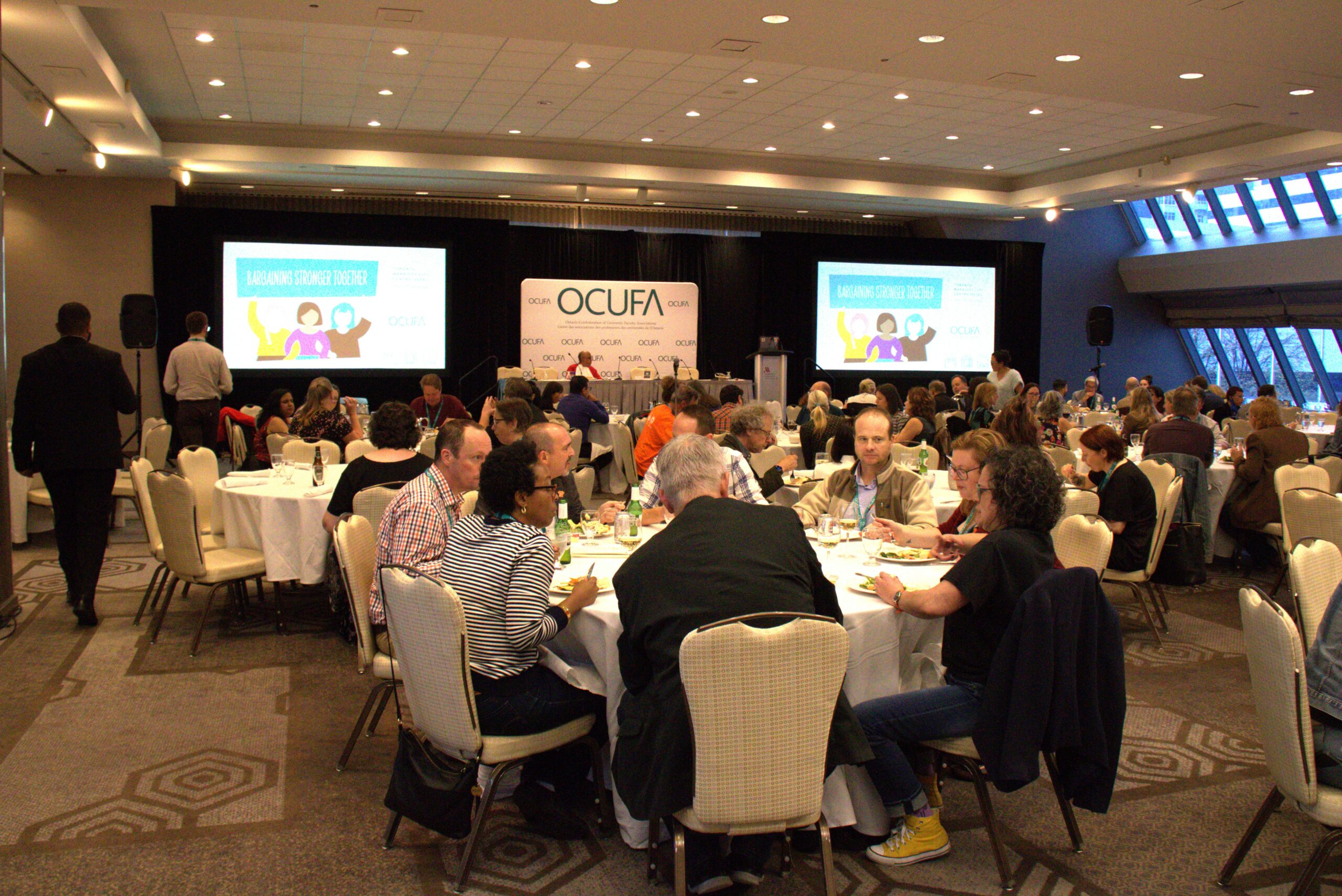
The conference opened with a panel on decolonization, reconciliation and Indigenization. Mukwa Musayett, Canada Research Chair in Indigenizing higher education from Thompson Rivers University, spoke about the structural changes needed to create pathways for Indigenous scholarship. Participants also heard about the need for competency in building trust and working with Indigenous communities from Darrel Manitowabi, President of the Northern Ontario School of Medicine Faculty and Staff Association. Akosua Matthews of Kastner Ko LLP provided an overview on the need for thorough institutional Indigenous identity verification processes.
The evening keynote speaker Deputy Prime Minister and Minister of Finance Chrystia Freeland spoke about the importance of universities and the immense power that unions have in lobbying governments, citing Bill 124 and the Companies’ Creditors Arrangement Act amendments as examples. While this Liberal federal government is supportive of academics and unions, she stressed that the university sector must hold the provincial government accountable for sustainable funding.
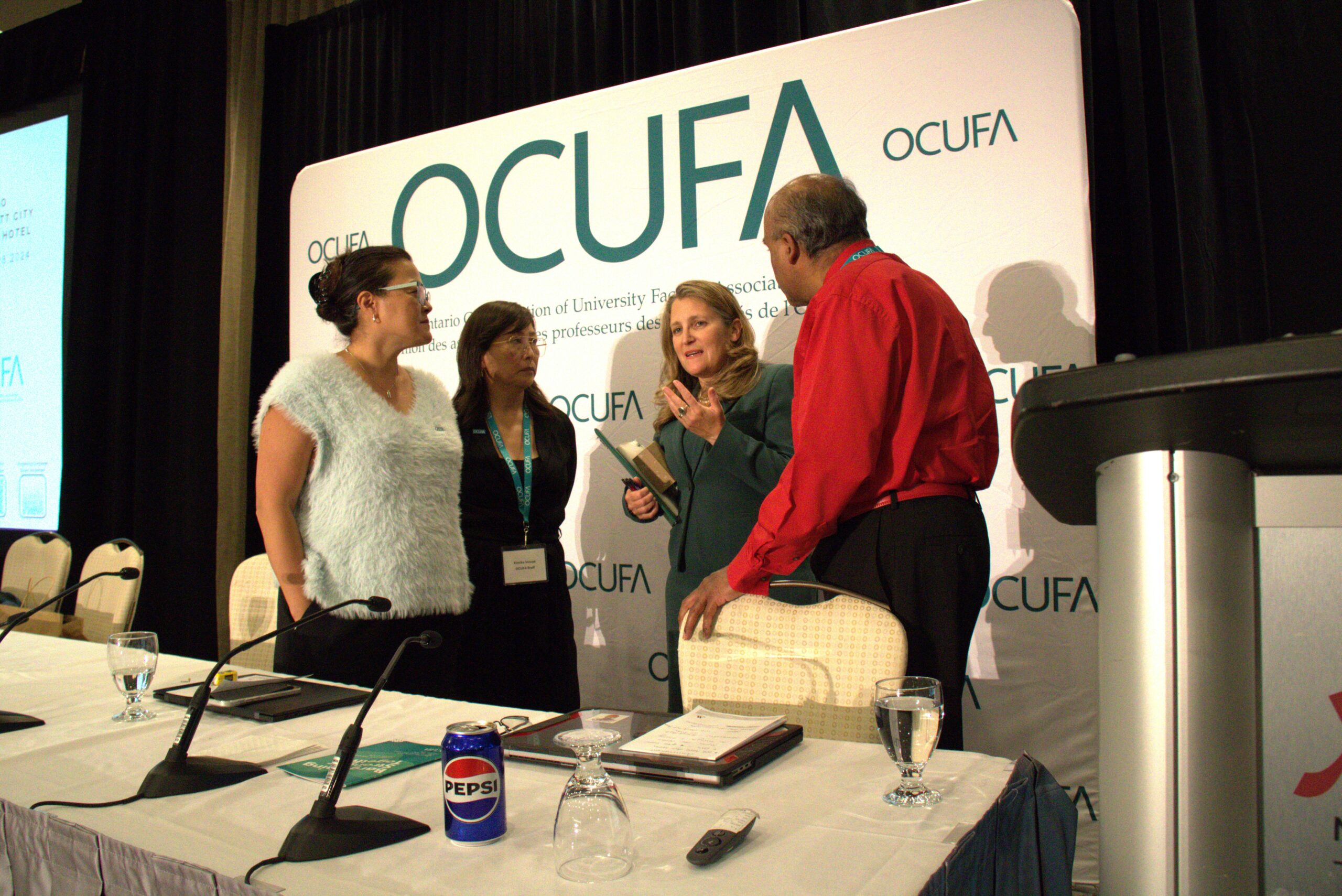
On the second day, Stacy Davis Gates, President of the Chicago Teachers Union (CTU), gave an inspiring speech – to a standing ovation – on the importance of taking risks and making allies in the face of “the impossible.” The CTU’s power comes from its members and their strong ties to the community in which they live and work. Stacy attests that building union strength and working with coalitions is hard, but the alternative is simply not acceptable.
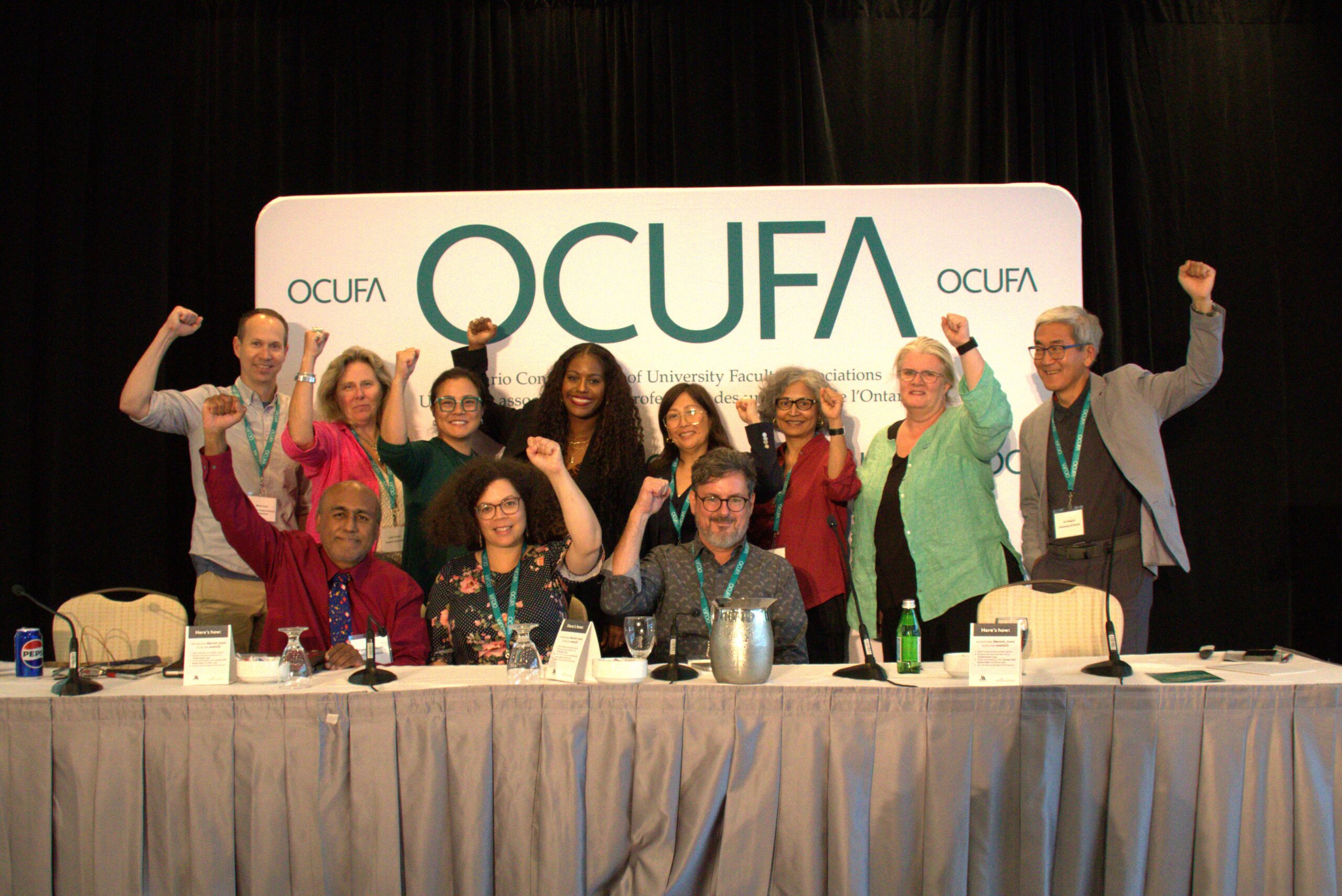
Participants also heard that the economy is the collective work of the people from Jim Stanford, renowned Economist and Director of the Centre for Future Work. Stanford championed the public sector – including universities and their workforce – as significant contributors to economic output.
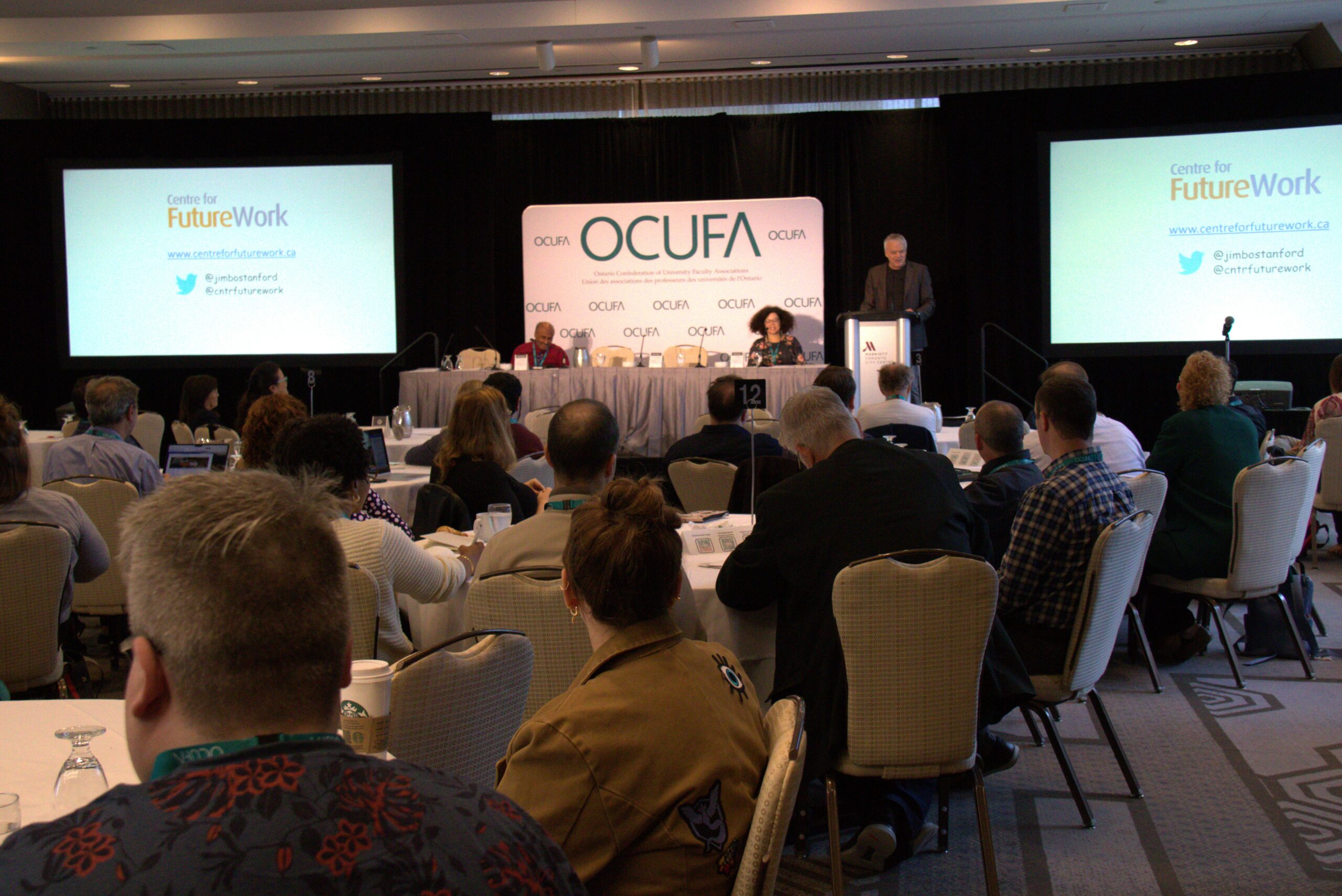
Strategies on how to educate, agitate, and organize support for broader public service workers and the importance of coalition building were also discussed on a panel featuring Natalie Mehra from the Ontario Health Coalition and Michelle Johnston from the Society of United Professionals. Lorimer Award recipients Leslie Jermyn (2024) and Sue Wurtele (2023) engaged with questions on how to win bigger with pattern bargaining.
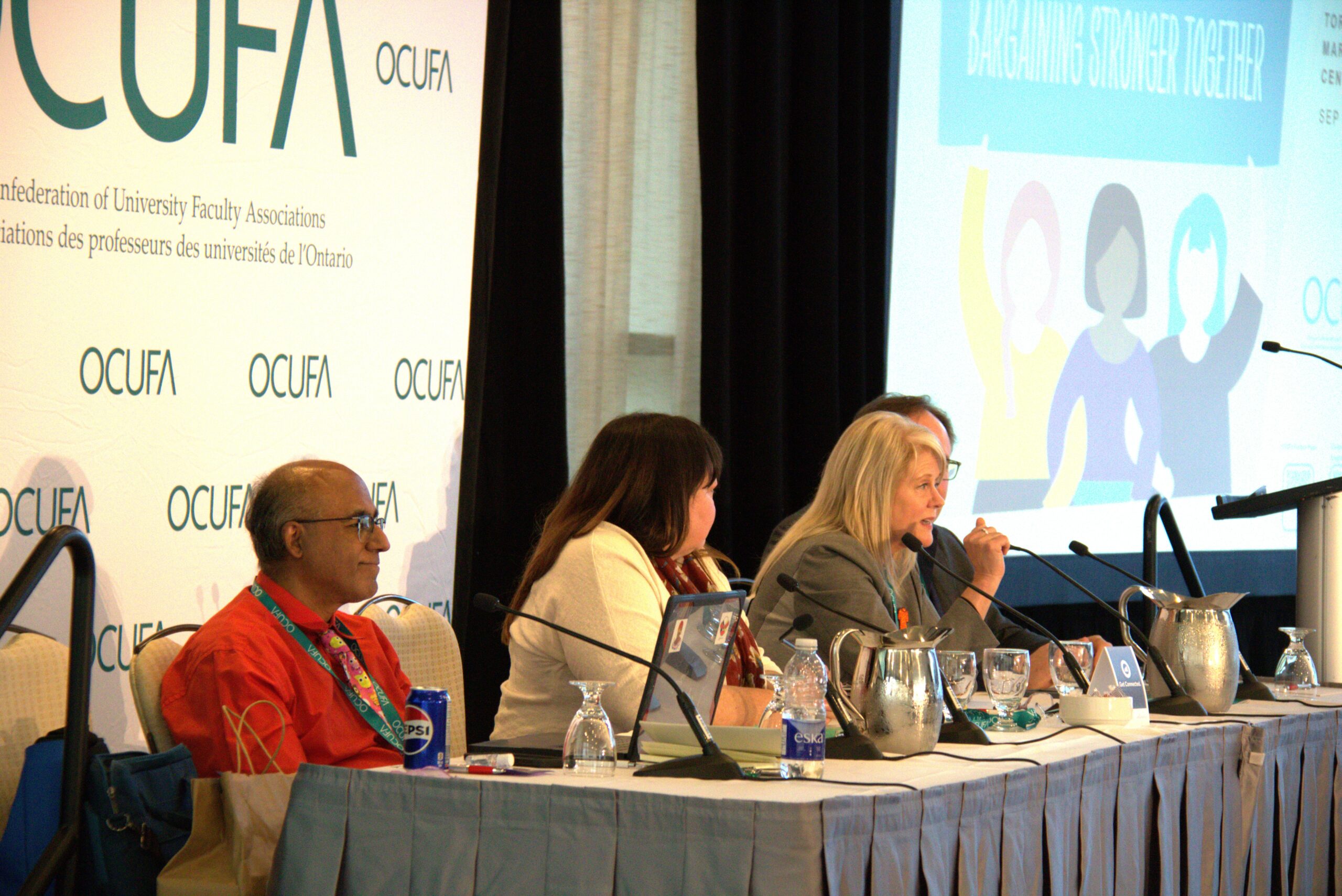
Attendees were also put to work in a workshop to identify their faculty association’s goals and how to communicate them.
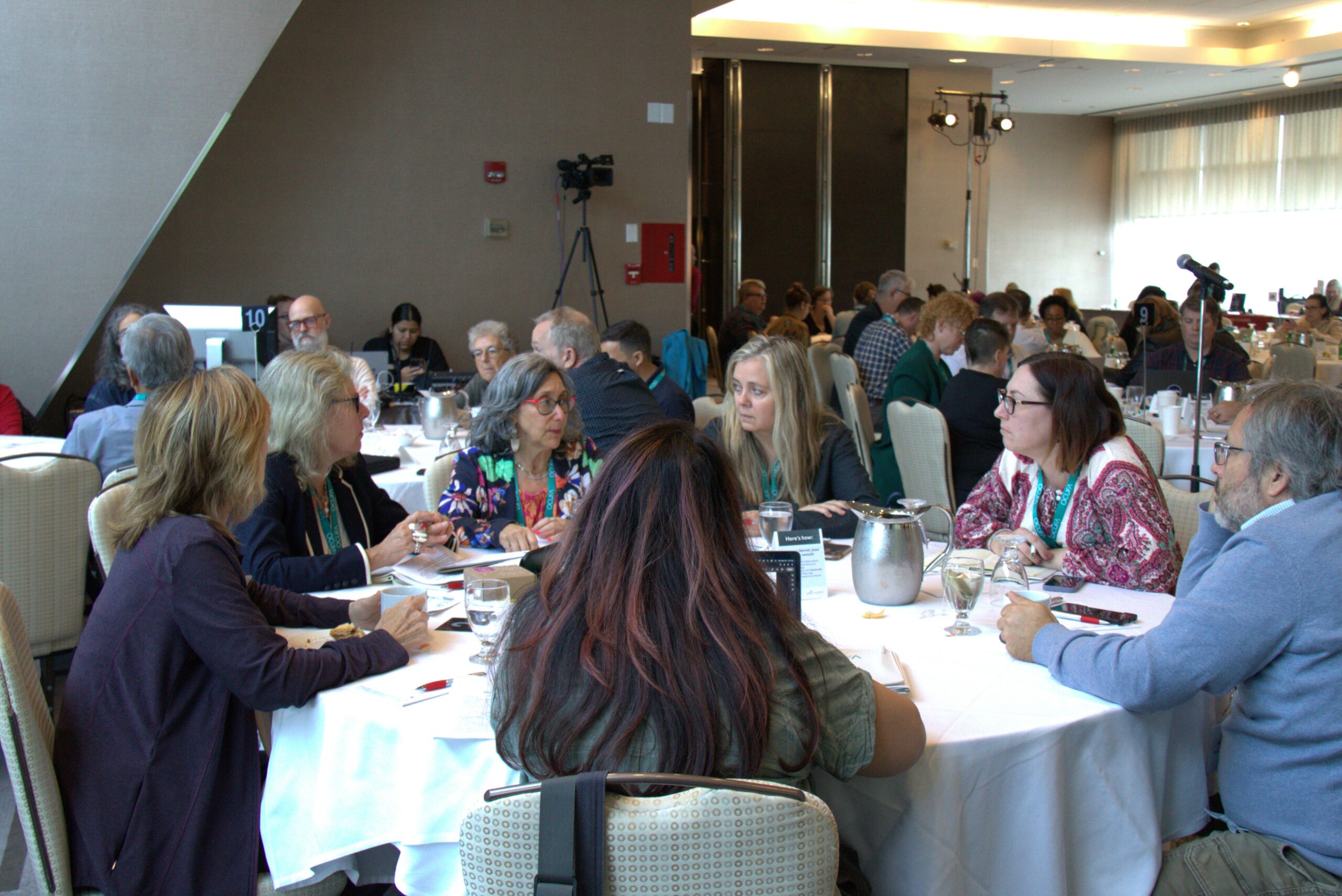
Participants were engaged, inspired, and gained very useful tools to continue the vital work of achieving important gains in bargaining. The conference reaffirmed the importance of solidarity work in building towards an even stronger collective across the province.
We will host this conference again in three years; see everyone then!

